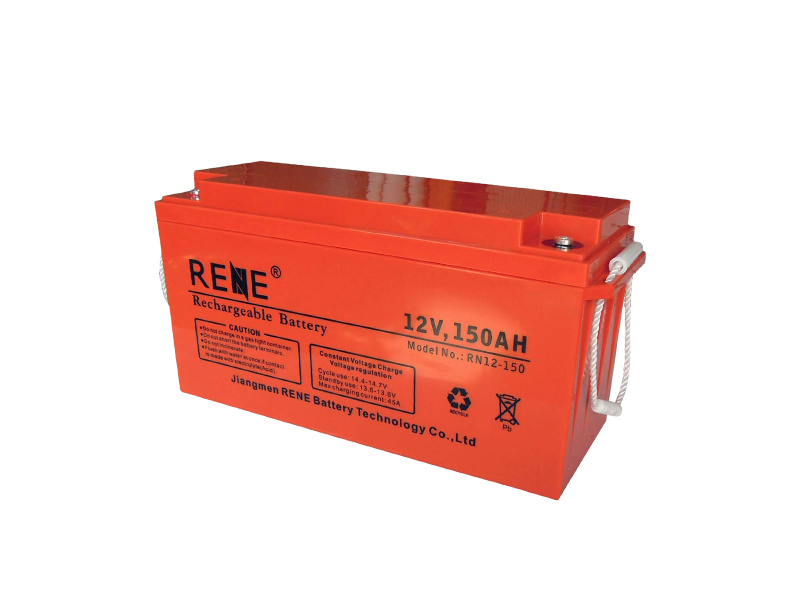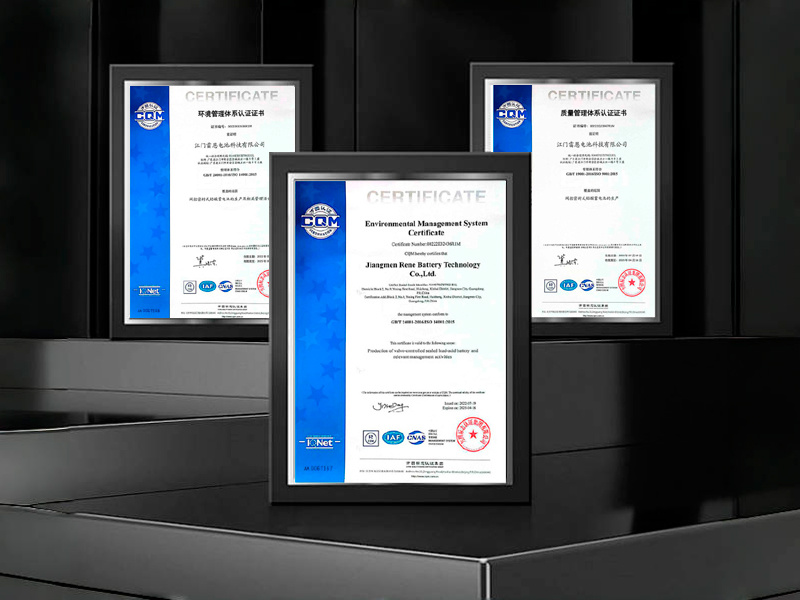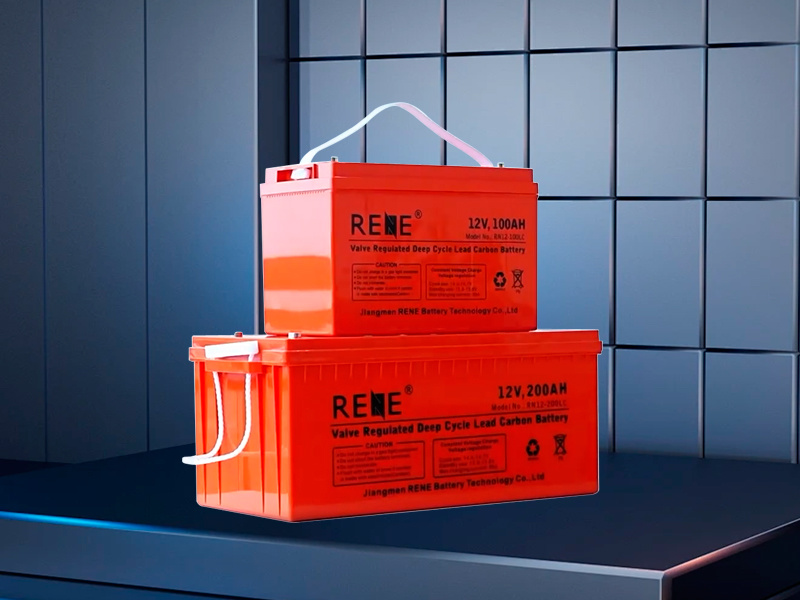Jiangmen Rene Battery Technology Co., Ltd.
Unlocking the Benefits of Advanced Lithium Batteries for Off-Grid Solar Solutions
2025-05-23
Unlocking the Benefits of Advanced Lithium Batteries for Off-Grid Solar Solutions Table of Contents Introduction to Advanced Lithium Batteries What Are Lithium Batteries? Advantages of Lithium Batteries Over Traditional Lead-Acid Batteries The Role of Lithium Batteries in Off-Grid Solar Systems Energy Efficiency and Storage Capacity of Lithium Batteries Environmental Impact of Lit

Unlocking the Benefits of Advanced Lithium Batteries for Off-Grid Solar Solutions
Table of Contents
- Introduction to Advanced Lithium Batteries
- What Are Lithium Batteries?
- Advantages of Lithium Batteries Over Traditional Lead-Acid Batteries
- The Role of Lithium Batteries in Off-Grid Solar Systems
- Energy Efficiency and Storage Capacity of Lithium Batteries
- Environmental Impact of Lithium Batteries
- Choosing the Right Lithium Battery for Your Off-Grid Solar Solution
- Installation and Maintenance of Lithium Batteries in Off-Grid Systems
- The Future of Lithium Batteries in Renewable Energy
- Frequently Asked Questions
- Conclusion
Introduction to Advanced Lithium Batteries
As the world shifts toward renewable energy solutions, **advanced lithium batteries** have emerged as a vital component in the **off-grid solar industry**. Their ability to store energy efficiently and discharge it reliably makes them an ideal choice for individuals and businesses looking to reduce their dependency on conventional power sources. This article delves into the numerous benefits of advanced lithium batteries, particularly in off-grid solar applications, providing insights into their technology, advantages, and future potential.
What Are Lithium Batteries?
Lithium batteries are rechargeable energy storage devices that utilize lithium ions to facilitate the movement of charge within the battery. Compared to traditional batteries like lead-acid, lithium batteries offer several **distinct advantages**:
- **Higher Energy Density**: Lithium batteries store more energy in a smaller volume, making them lighter and more compact.
- **Longevity**: They typically have a **longer lifespan**, enduring more charge cycles before degrading.
- **Faster Charging**: These batteries can be charged more quickly than traditional batteries, providing increased convenience.
These features make lithium batteries particularly beneficial for **solar energy storage** in off-grid systems where space and weight are critical factors.
Advantages of Lithium Batteries Over Traditional Lead-Acid Batteries
When comparing lithium batteries to traditional lead-acid batteries, several key advantages stand out:
1. Higher Efficiency
Lithium batteries can achieve up to 95% efficiency, meaning more of the stored energy can be used. In contrast, lead-acid batteries typically have an efficiency of about 80%.
2. Longer Lifespan
Lithium batteries can last up to **10 years or more** with proper care, whereas lead-acid batteries generally need replacement every 3 to 5 years.
3. Less Maintenance Required
Lead-acid batteries often require regular maintenance, such as fluid checks and equalization charges, while lithium batteries are virtually maintenance-free.
4. Temperature Tolerance
Lithium batteries perform better in extreme temperatures, ensuring reliable operation in diverse climates. Lead-acid batteries can suffer reduced performance in cold temperatures.
The Role of Lithium Batteries in Off-Grid Solar Systems
Lithium batteries play a crucial role in the functionality of **off-grid solar systems** by storing solar energy for use during periods of low sunlight or high demand. This capability provides several benefits:
1. Energy Independence
With the integration of lithium batteries, users can achieve greater energy independence, relying less on the grid and reducing their energy bills.
2. Enhanced System Performance
The high efficiency and quick discharge rates of lithium batteries enhance the overall performance of solar energy systems, allowing for **better energy management**.
3. Scalability
Lithium battery systems can be easily scaled up to meet the energy needs of larger homes or businesses, making them suitable for a variety of applications.
Energy Efficiency and Storage Capacity of Lithium Batteries
The energy efficiency of lithium batteries significantly affects the effectiveness of off-grid solar solutions. Their ability to store a large amount of energy is a game-changer for solar power users:
1. Increased Storage Capacity
Lithium batteries can store more energy in a smaller footprint, making them ideal for installation in limited spaces. This feature is particularly advantageous for urban settings where space is at a premium.
2. Smart Energy Management
Modern lithium battery systems often come equipped with **smart technology**, allowing users to monitor their energy consumption and optimize storage for peak efficiency.
Environmental Impact of Lithium Batteries
The environmental footprint of energy storage solutions is a critical factor in their adoption. While lithium mining does have environmental implications, advances in technology are making lithium batteries a more sustainable choice:
1. Reduced Carbon Footprint
By utilizing renewable energy sources, users can significantly reduce their carbon footprint when powered by lithium batteries.
2. Recycling and Repurposing
The recycling of lithium batteries is becoming more efficient, allowing valuable materials to be recovered and reused, thereby minimizing waste and environmental impact.
Choosing the Right Lithium Battery for Your Off-Grid Solar Solution
Selecting the appropriate lithium battery is essential for maximizing the benefits of an off-grid solar system. Here are some key considerations:
1. Capacity Requirements
Evaluate your energy needs to choose a battery with sufficient capacity. This involves calculating your daily energy consumption and the duration of autonomy you require.
2. Battery Type
Lithium-ion, lithium iron phosphate (LiFePO4), and other variants offer different benefits. Consider factors like lifespan, cost, and thermal stability when selecting the battery type.
3. Manufacturer Reputation
Research reputable manufacturers known for producing high-quality lithium batteries. Look for warranties and customer reviews to gauge reliability and performance.
Installation and Maintenance of Lithium Batteries in Off-Grid Systems
Proper installation and maintenance are vital for the longevity and efficiency of lithium battery systems:
1. Professional Installation
It is recommended to have lithium battery systems professionally installed to ensure safety and optimal performance. A qualified electrician can assess your system needs and install the batteries correctly.
2. Regular Monitoring
Although lithium batteries require less maintenance than lead-acid batteries, regular monitoring of charge levels and performance is essential to ensure long-term efficiency.
3. System Updates
Stay updated with the latest technological advancements in energy storage and renewable energy systems. Upgrading components as needed can enhance the overall effectiveness of your off-grid setup.
The Future of Lithium Batteries in Renewable Energy
The future of lithium batteries in renewable energy is promising. As technology continues to evolve, we can expect:
1. Enhanced Efficiency
Continual advancements in battery technology will likely lead to even greater efficiency, reduced costs, and increased storage capacity.
2. Integration with Smart Grids
As smart grid technology develops, lithium batteries will play an integral role in energy distribution, helping balance supply and demand more effectively.
3. Broader Adoption
With decreasing costs and increasing awareness of renewable energy benefits, more consumers and businesses will adopt lithium battery solutions as part of their energy strategy.
Frequently Asked Questions
1. What is the lifespan of a lithium battery in an off-grid solar system?
A lithium battery can last up to 10 years or more, depending on usage and maintenance.
2. Can lithium batteries be recycled?
Yes, lithium batteries can be recycled, and many facilities specialize in recovering valuable materials from used batteries.
3. How do I know what size lithium battery I need?
Calculating your energy consumption and required autonomy will help determine the appropriate battery size for your needs.
4. Are lithium batteries safe for homes?
Yes, when installed correctly, lithium batteries are safe for residential use and include built-in safety features.
5. What are the environmental impacts of lithium mining?
While lithium mining has environmental concerns, advancements in sustainable mining practices and battery recycling are mitigating these impacts.
Conclusion
Advanced lithium batteries represent a significant advancement in energy storage technology, particularly for off-grid solar solutions. Their efficiency, longevity, and adaptability make them an excellent choice for individuals and businesses aiming to harness renewable energy while minimizing their environmental impact. As technology evolves and adoption increases, lithium batteries will play a crucial role in shaping the future of sustainable energy solutions, offering users both independence and reliability in their energy systems. Embracing this cutting-edge technology not only enhances energy efficiency but also contributes to a cleaner, greener planet for future generations.
Key words:














